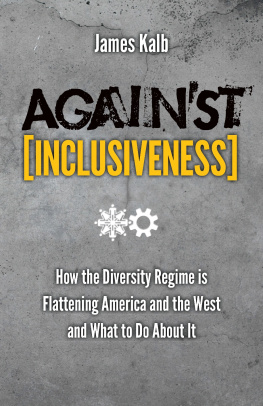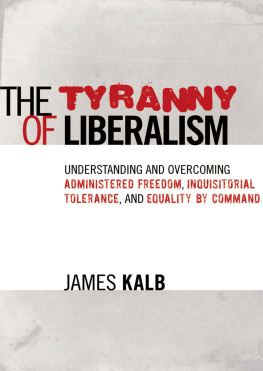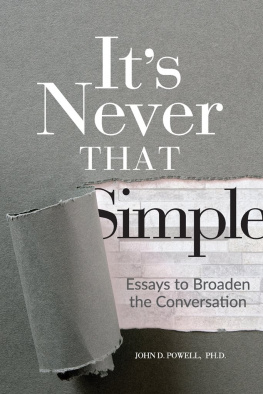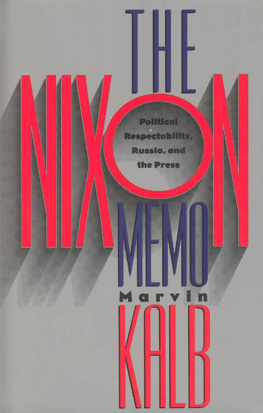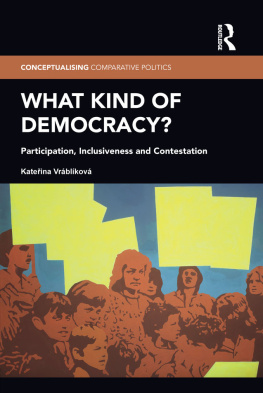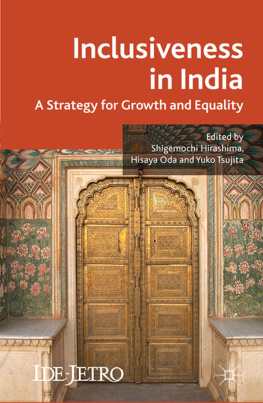Against Inclusiveness
JAMES KALB
Against Inclusiveness
How the Diversity Regime
is Flattening America and the West
and
What to Do About It

First published by Angelico Press, 2013
James Kalb, 2013
All rights reserved
No part of this book may be reproduced or transmitted, in any form or by any means, without permission.
For information, address:
Angelico Press, 4619 Slayden Rd., NE
Tacoma, WA 98422
www.angelicopress.com
978-1-62138-040-5 Paperback
978-1-62138-042-9 Cloth
978-1-62138-041-2 eBook
Cover Design: Michael Schrauzer
CONTENTS
Introduction
Not long ago I published a book, The Tyranny of Liberalism, that denounced the contemporary liberal state as tyrannical. One theme of the book was the destructiveness of inclusiveness as an ideal and program. I gave that theme some prominence, but it received next to no attention.
No one, it seemed, wanted to touch or even notice it. This is not surprising. To criticize inclusiveness means favoring exclusion. People find that frightening, and it suggests topics such as group differences that are imprudent to mention. Not long ago, the president of Harvard University and one of Americas most eminent scientists both lost their jobs by making comments on sex and race that were rational, and relevant to important issues, but offensive to current sensibilities. If that can happen to Lawrence Summers and James Watson, how can the rest of us feel secure?
Topics that are prudent for each of us to avoid individually may be disastrous to avoid as a society. Sex, religion, and ethnicity are aspects of human identity, because they relate to basic human connections. Without substantive debate, inclusiveness with regard to such matters has become an imperative that is transforming the whole of life. A realistic discussion of what it means to try to suppress those connections and negate their effect seems called for.
It is difficult to carry on such a discussion in a focused and intelligent way today. Highly-charged topics provoke misunderstanding, misrepresentation, and outrage, and it avoids trouble to accept established views. Also, such views correspond to established interests that do not want basic points called into question. Those who raise difficult issues are not likely to get a fair hearing and often lack the diplomatic skills needed for effective presentation of disfavored opinions.
Scope of the Argument
Under such circumstances, a general account of the arguments presented in this book may help sharpen the issues and focus attention on the views actually proposed. These arguments have limited scope and do not depend on contentious matters such as natural differences among races or the merits of particular cultures. Instead, they deal with the role of cultural networks and distinctions of sex in social functioning and argue that such effects must be accepted and taken into account, if people are to live together harmoniously and productively.
The attempt to suppress or ignore such effects, I argue, is utopian in the way anarchy and communism are utopian. Sexual and cultural distinctions are too much intertwined with human life to be made irrelevant to how it works. Nor is such a situation something to regret. Every social order requires distinctions and exclusions, and everything human can be abused, so the issue is not whether making distinctions can cause problems, but whether there are human tendencies and functions that mean they must be allowed some effect. Discrimination of some sort is inevitable, and inclusiveness is itself part of a liberal political order that discriminates based on wealth, bureaucratic position, political outlook, and formal certification.
The difference between the discriminations the liberal order allows and those it does not has little to do with any reasonable understanding of justice. At bottom, inclusiveness is merely one aspect of an attempt to turn social life into something like an industrial process in which human beings become components of a machine. To demand inclusiveness is to demand that these human components be distinguished only by reference to the demands of the machine and otherwise be treated as interchangeable. This is why educational certification is acceptable as a distinction, while sex and cultural affiliation are not.
Such a conception is destructive, since human life is not mechanical. We conduct it through relationships that operate in a variety of ways corresponding to the diversity of human needs, functions, and concerns. Such relationships are not easily rationalized and they always involve inequalities, since organization involves inclusion, exclusion, and hierarchy. The attempt, therefore, to eradicate such inequalities suppresses basic functional aspects of social life and results from a view of social functioning that reflects a narrow and confused view of rationality. This distorted view of rationality is supported by basic confusions in thought characteristic of our time, as well as by particular class and institutional interests.
For the sake of freedom and human well-being, such attempts to remake social life should be abandoned in favor of a more laissez-faire attitude toward private discrimination at least. When there is abusive conduct, the response should not be one of abolishing distinctions that correspond to normal functions and concerns, such as distinctions of sex and particular culture, but should focus rather on specific situations. Such a proposal is, of course, radically at odds with what is now considered basic social morality, so much so that its adoption would require basic changes in the philosophical and even religious understandings now established. I hope, if not to convince all readers it is right, at least to persuade some that there are good reasons for favoring it and that the assumptions behind the inclusivist regime are of doubtful solidity.
I will also argue for basic principles that I believe would lead to a more reasonable and functional social order. The understandings leading to inclusiveness are quite basic, which means that its principles inevitably touch on basic social, philosophical, and religious matters. Although restricted in its initial focus, this book is therefore far-ranging in its ultimate concerns and implications. I try to assume as little as possible in the analysis, however, so that even those who decline to follow my conclusions through on all points should find the discussion of interest.
The Inclusivist Regime
We hear a great deal about inclusiveness, but what we hear is more effusive than analytical. The result is confusion. A discussion of the topic should therefore start with basics: what inclusion is, what it is for, and what it does.
Definition
Inclusiveness expresses a demand for equal treatment. Liberals believe that the benefits of society should be equally available to all, to the extent consistent with the efficient operation of a liberal system based on technology, markets, and bureaucratic supervision and control. Furthermore, they consider it a basic responsibility of government and indeed everyone to make them so. The result is an ever more comprehensive campaign for equality with respect to certain dimensions of human identity.
Inclusiveness has become a central part of that campaign. It is an attempt to integrate groups that are defined in ways that are not relevant to the needs of the liberal system into all social activities at all levels. More specifically, it requires that persons of every race, ethnicity, religious background, sex, disability status, and sexual orientation participate equally in all major social activities, with nearly proportional presence and success established as the measure of equal opportunity for such participation.
Next page
